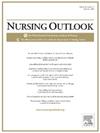The Fortitude Framework: A psychological model for sustained leadership presence in nursing
IF 3.7
2区 医学
Q1 NURSING
引用次数: 0
Abstract
Background
Despite growing recognition of the emotional strain and ethical complexity in nursing leadership, most leadership models continue to emphasize postcrisis recovery, role-based performance, or external outputs. This narrow framing leaves a gap in understanding how leaders can sustain their presence and judgment before, during, and after prolonged challenges.
Purpose
This conceptual article introduces the Fortitude Framework, a leadership model grounded in psychological appraisal theory and adapted from Pretorius’ theory of fortitude.
Methods
A concept analysis anchored in Pretorius’ theory of fortitude, combined with a theoretical synthesis of related constructs (resilience, grit, hardiness, and self-efficacy), was conducted to clarify fortitude’s conceptual boundaries. This process generated three interdependent internal capacities—Unapologetically Grounded (intrapersonal appraisal), Strategically Aligned (transpersonal appraisal), and Ethically Present (interpersonal appraisal)—that support sustained leadership presence under pressure.
Discussion
The Fortitude Framework translates these capacities into observable leadership patterns that can be actively developed through reflective practice, coaching, and context-sensitive leadership development. Public health nurses are offered as exemplars of this model in practice.
Conclusion
The Fortitude Framework is situated within existing literature on resilience, self-efficacy, and moral presence, distinguishing fortitude as a foundational capacity rather than a reactive trait. It offers a new lens for leadership development and mentoring while guiding system-level strategies to support psychological sustainability in nursing leadership.
坚韧框架:护理中持续领导存在的心理模型
尽管越来越多的人认识到护理领导中的情感压力和伦理复杂性,但大多数领导模式仍然强调危机后的恢复,基于角色的表现或外部产出。这种狭隘的框架在理解领导者如何在长期挑战之前、期间和之后保持自己的存在和判断力方面留下了空白。本文介绍了一种基于心理评价理论,改编自Pretorius的刚毅理论的领导力模型——刚毅框架。方法以Pretorius的刚毅理论为基础进行概念分析,结合相关构念(resilience, grit, hardiness, self-efficacy)的理论综合,厘清刚毅的概念边界。这个过程产生了三种相互依赖的内部能力——无歉意的基础(个人评估)、战略一致(超个人评估)和道德在场(人际评估)——这些能力支持在压力下保持领导的存在。坚毅框架将这些能力转化为可观察的领导模式,这些模式可以通过反思实践、指导和对环境敏感的领导力发展来积极发展。公共卫生护士在实践中作为这种模式的范例。结论刚毅框架是建立在现有的关于韧性、自我效能和道德存在的文献基础上的,它将刚毅作为一种基本能力而不是一种反应性特质。它为领导力发展和指导提供了一个新的视角,同时指导系统级战略,以支持护理领导力的心理可持续性。
本文章由计算机程序翻译,如有差异,请以英文原文为准。
求助全文
约1分钟内获得全文
求助全文
来源期刊

Nursing Outlook
医学-护理
CiteScore
6.20
自引率
7.00%
发文量
109
审稿时长
25 days
期刊介绍:
Nursing Outlook, a bimonthly journal, provides innovative ideas for nursing leaders through peer-reviewed articles and timely reports. Each issue examines current issues and trends in nursing practice, education, and research, offering progressive solutions to the challenges facing the profession. Nursing Outlook is the official journal of the American Academy of Nursing and the Council for the Advancement of Nursing Science and supports their mission to serve the public and the nursing profession by advancing health policy and practice through the generation, synthesis, and dissemination of nursing knowledge. The journal is included in MEDLINE, CINAHL and the Journal Citation Reports published by Clarivate Analytics.
 求助内容:
求助内容: 应助结果提醒方式:
应助结果提醒方式:


